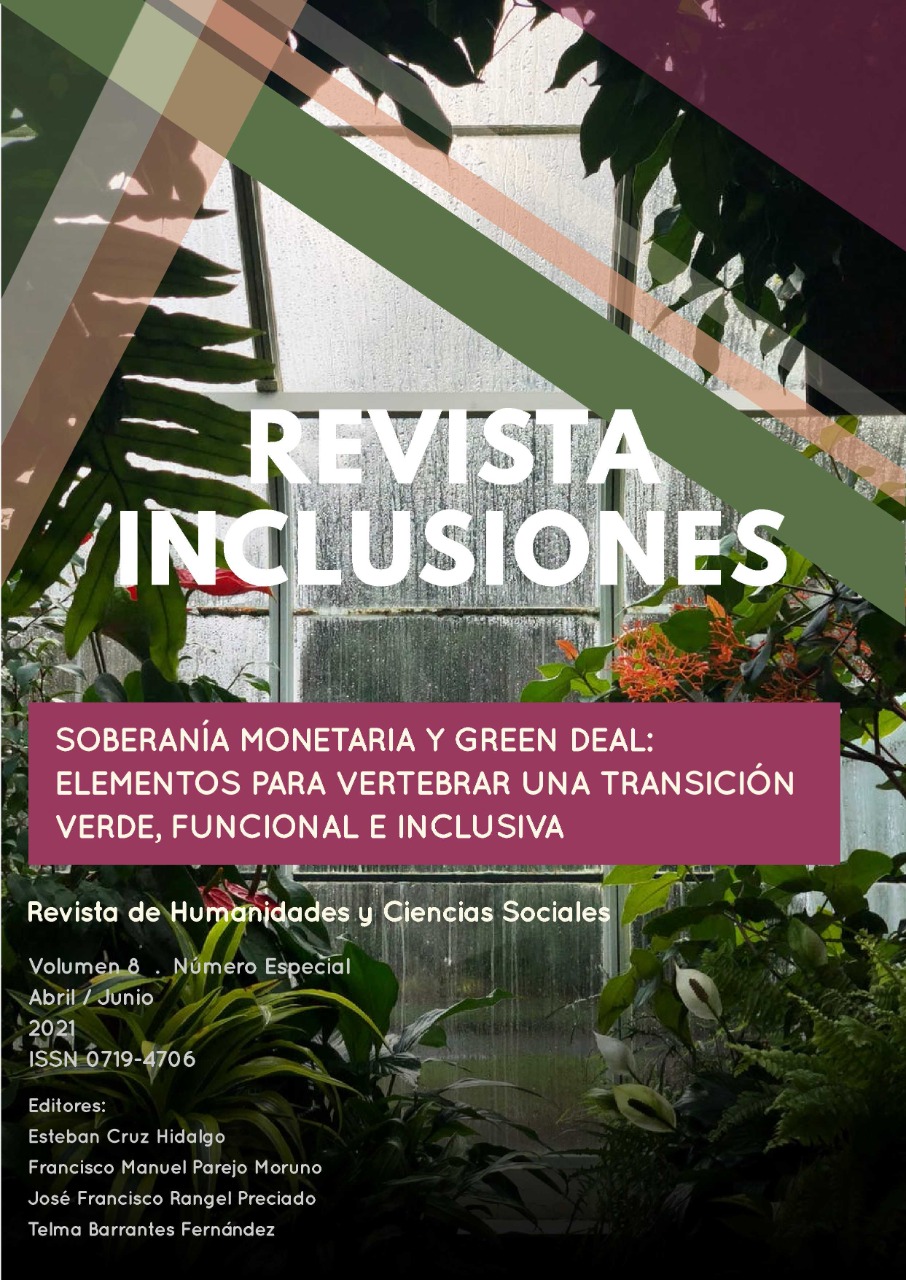JUSTIFICATION OF A GREEN NEW DEAL TO LIMIT MARKET FAILURES. ANALYSIS FROM THE ECOLOGICAL ECONOMY AND MODERN MONETARY THEORY
Abstract
The world faces an ecological crisis that neither the market, due to the value subjectivity, nor
environmental taxes manage to tackle effectively. On the other hand, there are projects that, in
principle, are not financially viable but have many social and environmental advantages for present
and future generations. There are even workers available for such projects, however the limitation
that prevents the implementation of such projects is the "theoretical scarcity" of money. Faced with
this situation, the Modern Monetary Theory provides the knowledge to understand that money is a
human conception that remains scarce by the decision of the human being, but that there are no
restrictions for it. Although, in economies that do not have the capacity to produce and generate
goods and services, the injection of money could cause an inflationary process. For this reason, this
paper points out the distinguishes market failures through the ecological economy approach to
highlight and justify the importance of the Modern Monetary Theory in order to articulate a Green New
Deal.
Downloads
Published
Versions
- 03-03-2021 (2)
- 03-03-2021 (1)
How to Cite
Issue
Section
License
Copyright (c) 2021 Dr. Federico José Camargo

This work is licensed under a Creative Commons Attribution 4.0 International License.
Los autores retienen los derechos de autor y otorgan a Revista Inclusiones el derecho de publicación bajo Creative Commons Attribution 4.0 International (CC BY 4.0). Esto permite el uso, distribución y reproducción en cualquier medio, siempre que se otorgue la debida atribución al autor.











